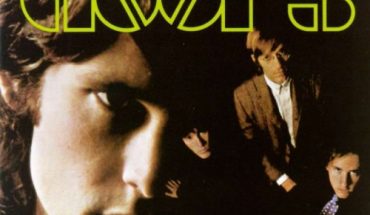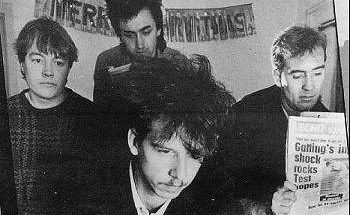Officially released September 21st, 1993, In Utero had already developed a legacy that was established months prior to release. As anticipation for the follow-up to the most revolutionary album of the 90’s reached fever pitch, Nirvana’s third studio record was already destined to become a combat zone between underground and corporate, mainstream culture. Moderated by a band that was religiously faithful to their roots but contractually indebted to financial institutions.
In Utero promised a more aggressive, vicious process of eliminating incompetent figures. Seen as a strenuous, conscious effort to realign Nirvana with the artists and inspirations they listened to, and distance themselves away from the band they were credited with influencing and inducing. The album’s title also reflected Cobain’s lyrical obsession for a secluded, almost back to the womb retreat from the constant celebrity examination.
By all reports, the whole album was recorded, mixed and produced in two weeks with recording engineer Steve Albini in a secluded studio nestled in Minnesota. However, this harmonious process evaporated into months of rancour exchanges among the band, record labels and Albini over the speculative unlistenable nature of the record. Upon release, In Utero debuted at number one. However, rather than guide a plethora of upcoming and vociferous bands to the top of the Billboard charts and install them into household conversations, In Utero initially saw millions of Nirvana’s casual fans running towards the enticing embrace of Pearl Jam’s October ’93 release Vs.
One of the many reasons In Utero resonates still to this day as a symbolic gesture, is due to its collection of 12 ferocious, introverted rock songs. Seen as a manual guide for any artist reaching their peak. Think of Oasis – Be Here Now or Kanye West – Yeezus. Artists who would rather use their elevated status to provoke audiences rather than pander to it.
Seen as rock n’ roll’s most famous suicide note after Cobain’s death in ’94, it would have been difficult to listen to In Utero in any other context. Very rarely in the history of rock n’ roll has overnight sensations, with the exception of Cobain and perhaps John Lennon, being so emotionally inundated by sudden good fortune, despised every single second of it and exorcised their discontent on a record with such candidness. The record is rife with sneers. Some amusing, majority viciously direct. Cobain inconspicuously goes on the attack at the money changers who milked the grunge movement dry and at the bandwagon sheep who never caught on to the irony of “Here we are now, entertain us.”
The notorious album-opening lyric that was sung with a great deal of sarcasm -“Teenage angst has paid off well/ Now I’m bored and old”– now sounds chillingly melancholy. Where the seismic stomper ‘Scentless Apprentice’ allows listeners to feel Cobain’s festering disgust with the music press and industry, the song’s gruelling shriek of “get awwwaaayyy” now suddenly seems to be directed at humanity itself. The “Leonard Cohen afterworld” imagination of ‘Pennyroyal Tea’ turned into wish-fulfilment; ‘All Apologies’ was permanently etched into its writer’s commemoration. It has also become the unofficial remembrance track for the iconic frontman. Cobain didn’t necessarily dread or dislike success; his real, personal struggle was achieving it on his own terms. If Cobain really wanted to clear the room and make this a commercial nadir, he could have made In Utero a lot weirder than what it actually turned out to be.





